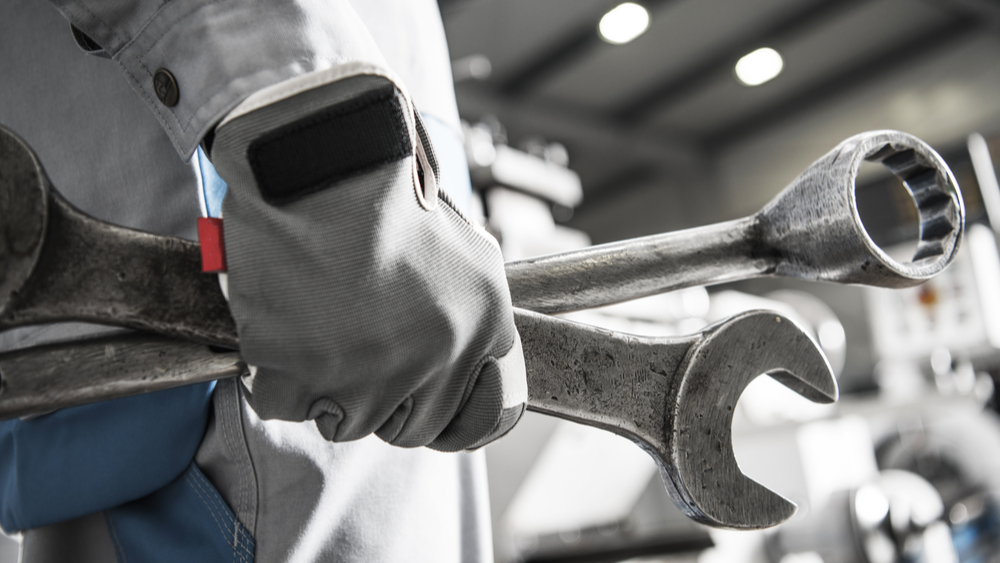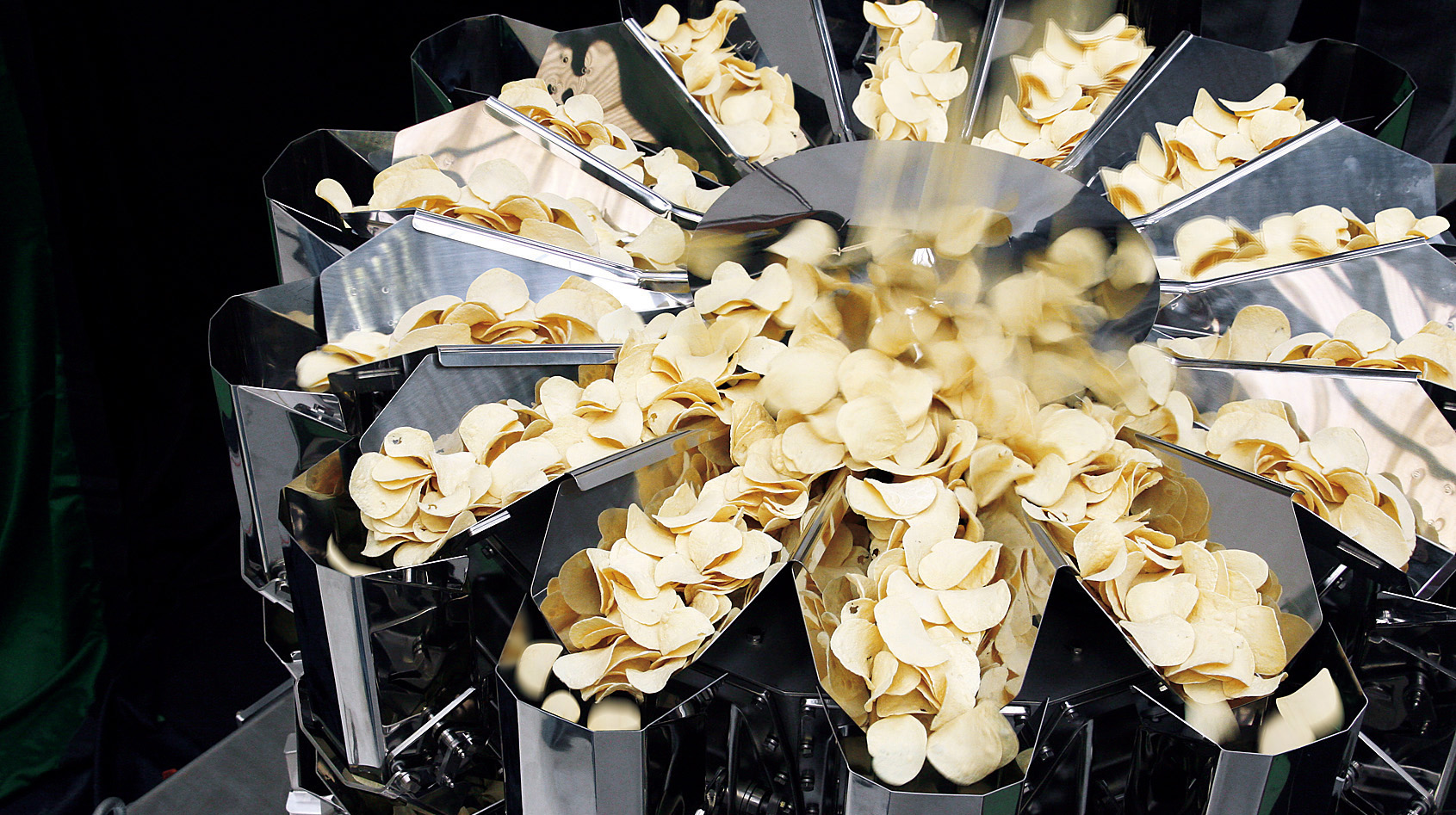How to adapt your plant for the ‘new normal’ post-COVID
Food manufacturers across the UK are dealing with unexpected challenges due to the coronavirus pandemic and ensuing lockdowns. Whether it’s having to scale up production to meet new demand, experiencing unprecedented downtime or maintaining social distancing, businesses have had to adjust their production processes to overcome the obstacles.
While the UK’s vaccination roll-out provides some glimmer of hope, manufacturers are continuing to experience challenges for which there is no quick fix. As we make our way through a third national lockdown, factories must juggle the need for recovery after coronavirus disruption with the necessity to keep their staff and customers safe.

It is impossible to know when, or if, the economy will return to pre-pandemic levels – or the extent to which consumer tastes and demand may be altered. So, plants need to look at ways of adapting to the new normal. By doing so, they can assist recovery, boost productivity and future-proof themselves against any future barriers to come.
In this guide, we have put together five steps manufacturers should take to prepare their production lines for the post-coronavirus reality while maximising results and ensuring safety.
- Utilise contact-free support
- Implement automated equipment
- Consider workflow
- Focus on cleanliness
- Open communication
Utilise contact-free support
Since the start of the coronavirus pandemic, we have all been asked to limit our contact with others. In the workplace, this means keeping visitors and close-contact working to a minimum.
If you run a factory, there are times when it is necessary to have external people coming onto your premises. One of the most pressing is when a system or machine breaks down, culminating in a call-out to an engineer to repair it.
While some providers will still be sending engineers out when required, the pandemic’s impact may mean that there is a reduced capacity, resulting in longer wait times. It is also vital to establish Covid-secure protocols to create a safe environment for your employees and visitors.
To minimise the need for external visitors, plants should aim to become self-sufficient where possible. By undertaking more repairs in-house, you will reduce the need for external visitors (thereby decreasing the risk of coronavirus spread) and speed up repair times compared to waiting for an engineer to arrive. It is worth noting there will always be times where specialist knowledge or equipment is required for certain repairs, so it is important to have the details for an expert repair engineer when you need them.

If you are keen to have the capability to carry out your own repairs, it is imperative that you build and maintain a healthy stock of spare parts in your warehouse. Your machine manufacturer should be able to supply these to you, so you know you are getting genuine parts that will be compatible with your systems and make for easy repair.
We can’t stress enough the importance of having these parts on-site, in advance. This means that you’re instantly ready when a fault occurs so that you can minimise downtime and lost output.
Many machine manufacturers will also offer technical assistance, such as a user manual that will help your designated employees make the fix quickly and adequately. In turn, you can minimise contact while still allowing productivity and efficiency across your lines.
Implement automated equipment
Another challenge that manufacturers are facing is the requirement for social distancing within workplaces. While some office staff may be able to work from home, production line workers (and anyone else who may be on-site) must be socially distanced across your site. This presents an obstacle in itself, with planning required to allow the appropriate distance while still enabling machines to be operated effectively.
To overcome the issue of social distancing, manufacturers may increasingly look to automation. Modern automated systems can operate with minimal human input, while still delivering precision, speed and accuracy. It is also possible to achieve some level of automation in most types of systems, from weighing to quality control.
The benefit of implementing automation in your plant is that automatic and semi-automatic machinery can maintain productivity across your production lines with fewer human operators. Where a manual machine may require multiple staff to operate it at maximum efficiency, automated equivalents will require fewer employees to work in one place. This prevents the need for close-contact work and crowding, with team members able to work elsewhere in the plant or supervising machines in shifts.
The need for automated machinery may become even more vital as the industry reacts to a growing skills shortage, exacerbated by post-Brexit immigration rules, with fewer workers available to operate production lines.
If you are introducing automated machinery into your plant, it is essential to ensure that your staff receive appropriate training to operate them correctly. This will also assist your team in adapting to the new processes and ensure accuracy and productivity.
Consider workflow
To tackle the need for social distancing in factories, it is crucial that owners and managers undertake careful planning of workflow. Typically, this is required at the start of a new project to make sure the line moves smoothly and efficiently. However, it may also mean re-examining existing projects to ensure social distancing is adhered to in the post-coronavirus world.
In the new normal, your workflow should allow staff members to stand at least two metres apart. Additionally, or if two metres distance isn’t possible, it may mean allowing workers to work back-to-back or side-by-side, installing screens or reducing the number of people in one area. You’ll also need to consider how employees can move about safely if this is required during production. All of these factors require mindful consideration of the logistics involved.

Importantly, when adapting workflow, you do not want to inhibit output. With many manufacturers already experiencing falling demand or on the receiving end of increased demand that needs to be met, productivity is critical. So, be sure to scrutinise your workflows and identify the best solutions for your plant – whether that be automation, shift patterns, new equipment or the reconfiguration of your production lines.
If you are struggling to adjust your workflow, it may be worth talking to your project manager to get their advice.
Focus on cleanliness
Understandably, the coronavirus spread has placed new emphasis on hygiene, and it is in the best interest of businesses to comply. Having effective hygiene measures will reduce the spread of COVID-19 by killing bacteria, allow you to meet compliance guidelines, keep staff and customers safe and prevent negative publicity.
Ensuring maximum hygiene in your plant means creating an environment of cleanliness. This will involve implementing a robust cleaning schedule, training staff on the measures to follow (such as frequent hand washing), encouraging quality assurance and using suitable equipment.
Aim to use equipment that is compatible with your applications. For example, sticky or liquid products may present more formidable hygiene obstacles. Your machinery should help you overcome these – such as having waterproof features to allow for easy cleaning. You should also check your machines’ IP rating, as this indicates how resistant it is to moisture and dirt. Generally speaking, the higher the IP rating, the more able the machine is to withstand washdown cleaning and sanitation, which is especially important when processing food and medicines.
By implementing a culture of cleanliness in your plant, you will be able to create a COVID-secure workplace for your staff while protecting your customers. This will matter now as the spread declines, as well as safeguarding you against any other bacteria and viruses that could culminate in illness, contamination and reduced productivity.
Open communication
In response to the COVID-19 restrictions, many factories are already working in shift patterns to minimise the number of employees on-site at one time. As people adapt their working habits, this may be a trend that continues.
If you are utilising shift patterns or have colleagues stationed in different locations, it is essential to ensure communication remains open. For example, if an issue occurs during one shift, the next shift should be aware of it and if any ongoing fix is required. This will also allow maintenance and cleaning processes to happen correctly and not get neglected between shifts. As a result, faults can be rectified early on, preventing the culmination of larger issues and downtime, and all tasks will be completed on time.

It is equally vital that any information regarding protocol, training or other workplace news is communicated to all staff, including those working from home. By doing this, you will ensure everyone remains on the same page while following their new working routines.
As a result, you will enhance employee motivation and productivity in even the most abnormal times.
In summary
With uncertainty still looming regarding the current lockdown and when ‘normality’ will resume in the UK, it is hard to pinpoint how long companies will need to account for COVID measures. Regardless, it is clear that this pandemic has changed how plants operate and is likely to have a lasting impact.
It is essential to take a proactive, innovative approach and plan for the new normal. By doing so, you will be well-placed to enjoy improvements to productivity with fewer disruptions, high levels of staff wellbeing and faster results.
At Yamato, we are committed to continuing to serve you during and after the coronavirus pandemic. Whether it is supplying spare parts, offering technical support or helping you to adapt your production lines, we are here to help. Together, we can facilitate recovery across the industry and strengthen resilience to future obstacles.
Get in touch today to find out how we can help.

